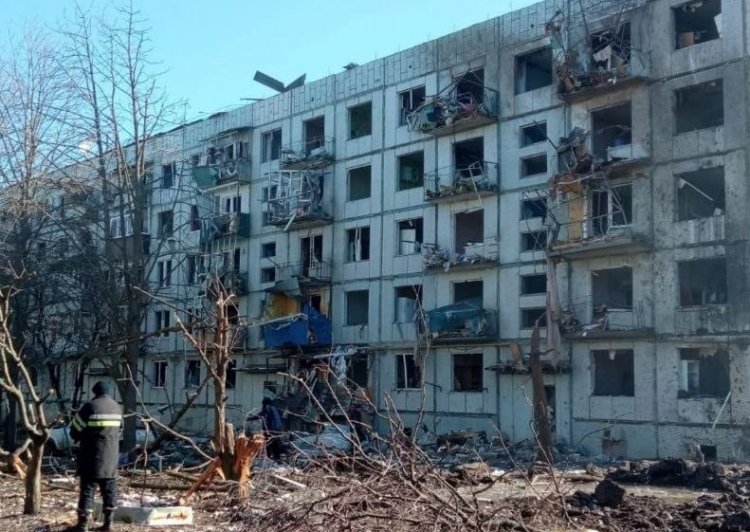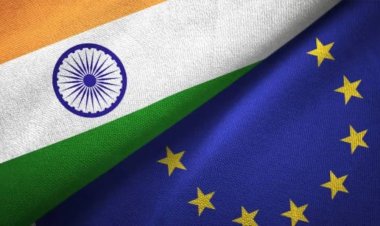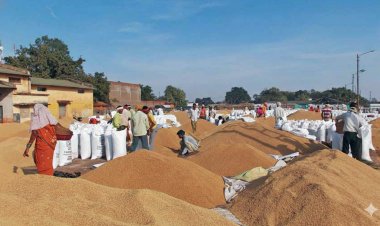Uncertainties loom large over emerging economies like India after Russian invasion of Ukraine
The US Fed has been contemplating an increase in the interest rates, a move that would bring a massive upheaval in the global capital markets. The finance capital would then look for safe havens and could, as a result, shift their portfolios to the major economies, leaving emerging economies, including India, facing considerable uncertainties. In such circumstances, not only would the stock markets in the emerging economies suffer due to the withdrawal of foreign investors but there would also be an impact on long-term financial flows, including FDI.

The Russian invasion of Ukraine has brought an already stuttering global economy to the precipice. In parts of the developing world, jobs and incomes are far from the pre-Covid levels, while the developed economies are currently facing levels of inflation that are at their highest levels in several decades. The prevailing situation will begin to get worse quite rapidly as crude oil prices reacted sharply immediately after the Russian troops started to breach the Ukrainian borders.
Russia is the second-largest supplier of crude oil with a market share of 15.5 per cent. It is the largest supplier of natural gas. Anticipating significant disruptions in the market, the price of Brent crude, the benchmark for the industry, increased to nearly $106 per barrel on Friday the 24th, its highest level since 2014. Though the prices have since declined to below $100, it is very likely that crude oil prices will start their upward push if the conflict between Russia and Ukraine worsens, as it is likely to over the next several days.
Inflationary pressures had begun to upset the calculus in many countries well before the Ukraine crisis. These could now assume catastrophic proportions as oil and gas prices are pushing higher. High rates of inflation have been severely impacting the consumers the world over. The most significant impact of inflation has been on those sections of the society that have suffered job losses and fall in incomes in the wake of the pandemic. Thus, even before they can think of getting their lives back on track, they are confronted with the daunting challenge of falling purchasing power. In countries like India, income inequality had already reached unacceptably high levels, and it is quite evident now that the worse is yet to come.
The oil price shock will have its cascading effect on every sector of the economy, heaping more miseries on the less disadvantaged. The knock-on effect of the adverse impact on the consumers would be felt by the manufacturing sector. This sector has already been under tremendous pressure as most industries have been facing severe demand contraction from even before the onset of the pandemic. In addition to the existing problems, these industries would now be facing higher input costs leaving them in a significantly more vulnerable state.
With inflation in many developed economies already at its highest level in several decades, global financial markets have been quite volatile over the past few weeks. The US Federal Reserve has been contemplating an increase in the interest rates, a move that would bring a massive upheaval in the global capital markets. The finance capital would then look for safe havens and could, as a result, shift their portfolios to the major economies, leaving emerging economies, including India, facing considerable uncertainties. In such circumstances, not only would the stock markets in the emerging economies suffer due to the withdrawal of foreign investors but there would also be an impact on long-term financial flows, including foreign direct investment. The post-Covid recovery plans would, therefore, have to be undermined because of the financial squeeze.
Agricultural commodity prices were extremely volatile in the immediate aftermath of the Russian Federation’s invasion of Ukraine. Although prices had receded by the end of last week, a continuation of the conflict could have a significant impact on the markets in the weeks and months ahead. The Russian Federation and Ukraine are key players in global commodity markets and supply shortages would, therefore, be an inevitable consequence of the conflict between the two countries.
The Russian Federation and Ukraine had accounted for more than 30 per cent of the global exports of wheat in 2020, 19.4 per cent of coarse grains and more than 14 per cent of vegetable oils. Further, the Russian Federation was controlling 14-16 per cent of global chemical fertilizers in 2019-20, and supply disruptions of fertilizers could adversely affect availability in countries, including India, that are dependent on imports from Russia. Besides impacting agriculture and agricultural markets, supply disruptions from Russia could also be felt on the market for coal, in which it has a 16 per cent share, as well as on iron and steel market since in some of the products, Russia’s export share has been very high.
Barring the few sanctions that they have already announced, the Western alliance does not have any concrete plans to stop the Russians. The sanctions seem hardly enough to hit the Putin Administration in a substantial manner and, therefore, may not act as a deterrent. The sanctions have not touched the commodities in which Russia has large trading interests, considering the extent of the Russians' stranglehold on the global markets for these commodities. This is turning out to be to Russia’s advantage since the alliance is well aware that targeting these commodities could leave the global economy in a far worse situation than it already finds itself in. For the global community, this is certainly the worst situation to be in; a prolonged period of uncertainty beckons as the world finds itself helpless to get the Russians out of Ukraine.
(Dr Biswajit Dhar is a Professor at Centre for Economic Studies and Planning, School of Social Sciences, Jawaharlal Nehru University. The views expressed here are his own.)



 Join the RuralVoice whatsapp group
Join the RuralVoice whatsapp group









































